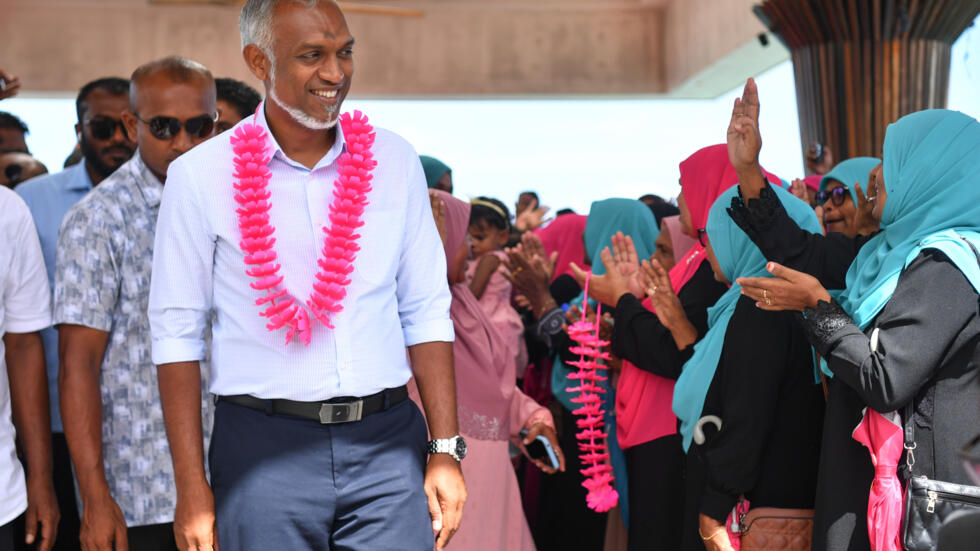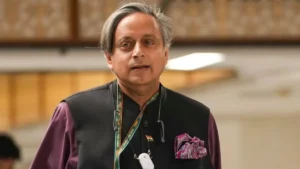In a closely-watched election in the Maldives, Mohamed Muizzu, the candidate from the Progressive Party of Maldives (PPM), emerged victorious in the presidential polls after a runoff vote. This victory came after a first round of polling failed to produce a clear winner. Muizzu secured more than 53 percent of the vote in the runoff, defeating the incumbent president, Ibrahim Solih. Here, we provide a breakdown of the election results, Muizzu’s political background, and the implications of this election.
Election Results:
- In the first round of voting, Muizzu led with approximately 46 percent of the votes, while Ibrahim Solih trailed with 39 percent.
- The runoff election saw Muizzu consolidating his lead with over 53 percent of the votes, as reported by local media sources after tallying results from all 586 ballot boxes.
- President Ibrahim Solih gracefully conceded defeat and congratulated Muizzu on his victory.
Muizzu’s Pro-China Stance:
- Mohamed Muizzu is known for his ‘pro-China’ stance, which stems from significant Chinese loans received by the Maldives during the previous PPM government’s tenure.
- These loans have led to closer economic ties between the Maldives and China, including infrastructure projects and investments in the country.
Muizzu’s Background:
- Muizzu, currently serving as the mayor of the capital city, Male, is a well-educated leader with a doctorate in civil engineering from the University of Leeds in the United Kingdom.
- He previously held the position of Minister of Housing in former President Abdulla Yameen’s cabinet.
Call for Former President’s Release:
- In his post-election statement at his party’s headquarters, President-elect Muizzu expressed gratitude to his supporters and called on the government to release former President Abdulla Yameen.
- Abdulla Yameen is currently serving an 11-year jail sentence on a corruption conviction.
Historical Significance:
- Notably, Muizzu’s victory marks the first time since the country’s first multi-party elections in 2008 that Maldivians have voted out a liberal democratic government in favor of an authoritarian challenger.
- This outcome signifies a significant shift in the country’s political landscape and its foreign policy orientation, particularly in relation to China.
Reversal of Fortunes:
- The election result is a stark reversal of fortunes for President Ibrahim Solih, who won the previous election in 2018 by a landslide.
- Solih’s 2018 victory was driven by public anger over human rights abuses and corruption under his predecessor’s administration.




 Which Lake is known as the Jewel of Udai...
Which Lake is known as the Jewel of Udai...
 Which is the Largest Banana Producing St...
Which is the Largest Banana Producing St...
 Shashi Tharoor Conferred Honorary D.Litt...
Shashi Tharoor Conferred Honorary D.Litt...








